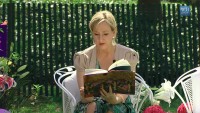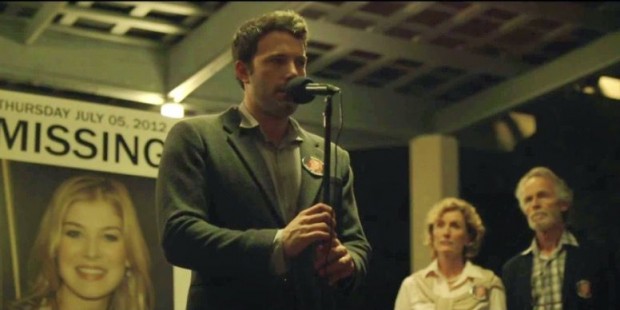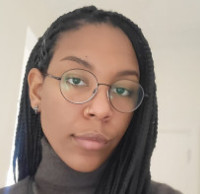The Critical Critique: How editing your writing increases your chances of getting published
By Rocky Reichman
Editor and Publisher, Literary Magic
firstwriter.com – Sunday August 27, 2006
There are many things a writer has to have in mind when trying to get published. Among these are learning how to write a professional critique and having credentials. However, most aspiring authors too often miss out on one of the most critical elements necessary to become a published author: editing. No matter how good your query letter is, you still need work that's written well. Even if you have good credentials, that won't matter to an editor or literary agent. When they see work that is either poorly edited or not even edited at all, one word screams out at them: amateur.
Having your work edited really can make or break your chances of getting published. While first-class queries and excellent credentials can impress editors, they absolute loathe badly edited work. After all, isn't the job of an editor to make sure every manuscript is edited? It is. Therefore, editors can't stand work that's not edited or not well written. Why is editing your work so important to the editors you submit it to? Because writing that needs editing means a lot of work for editors. It takes time to edit; precious time that editors don't have. If you haven't edited your writing properly before sending it off, then odds are that you're chances of becoming a published author are slim. Bad editing is a turnoff for editors: the last thing they need is more work. Therefore, it's best for every writer to have this in mind before they send their work out to editors and agents. Not only does badly edited work disappoint editors and agents, but it also tells them that they're dealing with a writer who isn't professional. Having professionalism is vital to becoming published, and without that, no agent or editor is going to take you seriously as a writer.
How can you avoid this? How can you show editors and agents that you're a professional writer?
There's only one way, really: show them that you care. Show them that you are a writer dedicated to your work. All you really need is a bit of care and effort. Make a commitment to start editing your work. No writer enjoys having to edit his or her own work – that's a nightmare for most of us – but a little effort goes a long way. As the saying goes, "practice makes perfect", and I think that the more a writer proofreads and edits his or her own work, the better they'll become at it. Once writers master the art of editing, they've saved themselves a lot of rejection letters and have increased their chances of getting published.
In what way should you, as a writer, go about editing your work? First, you will need to proofread and copyedit your work, which means correcting any grammatical, spelling and language mistakes. Then, you will also need to do some content editing, or critiquing. This includes proofreading as well as editing for content, clarity and making sure your manuscript flows properly and can be easily read.
There are different paths you can take to edit your work, and the following are what I suggest. First, you can learn how to edit your work yourself. Though this takes time, it shows you care. If you follow this suggestion, then you will also save yourself a lot of money on editorial services and learn how to be an editor at the same. My second suggestion is that you get a very close friend or relative (these can include a spouse, parent or brother) and get them to be your personal editor. By having someone you know well to edit and critique your work, not only will you get the most valuable evaluation of your work, but you will also be more willing to listen when your editor suggests improvements. Because you know your editor well, you know that when they give you suggestions that improve your writing they are not being biased; rather, they care for you and your writing. I myself learn a lot any time someone critiques my work, and because of listening to them and learning from my mistakes, my writing always improves. My third and final suggestion for all writers is, if you don't agree with my first two suggestions, then do not go alone on this: hire someone as your professional editor. Pay for an editorial or critique service to help you improve your writing. It will prove worth the money in the end, when you are a published writer.
By following the above suggestions, you'll never have badly written or poorly edited wok again. You'll literally find yourself receiving fewer rejections from editors, and soon you will no longer be a writer – you will be an author.
 Editor's Note: Rocky's absolutely right to identify the importance of editing your work before submitting it for publication, but I'd personally suggest that writers should use all three of the methods he identifies, rather than seeing these as options to choose from. You should always edit your work as well as you can yourself before passing it on to anybody. Once you've done this, a suitable friend or family member may be able to help you tackle issues you've missed before going to the expense of having your work professionally edited, but (and this is where I disagree with Rocky) I don't think this can be seen as a substitute for a professional editor. Contrary to Rocky's opinion, I'd suggest that your "personal editor" will always be biased – they will always tell you your work is great (after all, they have a relationship with you outside the book, which they have to consider), and – unless they have experience in the publishing industry – there's no reason to think they'll be any better than you at spotting errors and inconsistencies.
Editor's Note: Rocky's absolutely right to identify the importance of editing your work before submitting it for publication, but I'd personally suggest that writers should use all three of the methods he identifies, rather than seeing these as options to choose from. You should always edit your work as well as you can yourself before passing it on to anybody. Once you've done this, a suitable friend or family member may be able to help you tackle issues you've missed before going to the expense of having your work professionally edited, but (and this is where I disagree with Rocky) I don't think this can be seen as a substitute for a professional editor. Contrary to Rocky's opinion, I'd suggest that your "personal editor" will always be biased – they will always tell you your work is great (after all, they have a relationship with you outside the book, which they have to consider), and – unless they have experience in the publishing industry – there's no reason to think they'll be any better than you at spotting errors and inconsistencies.
A professional editor (i.e. someone with experience working as an editor within the publishing industry) will be able to help you with correct manuscript formatting, advise you on how to make your work a publishable book, rather than just a good book, and, most importantly, will have years of experience plying the trade of editing – and if they don't, then don't use them. Far too many people start offering "proofreading" services under the misconception that it will be "easy money" – after all, you've just got to read, right? Wrong. Reading and editing are completely different skills. When I graduated with a degree in English I was certainly a sensitive reader – but when I took a simple editorial test I missed almost every deliberate mistake on the paper. As readers, we tend to "grey out" mistakes in order to smooth our consumption of the information – as editors, we must learn to do exactly the opposite. In a sense, you have to undo all the years of education where you gradually learned to recognise words by their overall shape, and go back to the stage where you recognised words by spelling out their individual letters. This isn't an easy task, and you shouldn't assume that the fact that someone is an intelligent person, or an avid reader, qualifies them to properly edit a manuscript.
So if you can afford it, it's definitely worth going to the expense of having your work professionally edited – but if you do, make sure the person you use has some kind of editorial track record, and isn't just someone who has set up with the hope of some "easy" extra money.
To have your work edited or critiqued by professional editors through firstwriter.com, click here
About the Author
Rocky Reichman is a writer and Editor and Publisher of the online literary magazine Literary Magic. He is a Reviewer for the Midwest Book Review and MBR and TCM Reviews. He has authored several articles and reviews, and his language columns have appeared in many newsletters and publications. Visit his website at www.LiteraryMagic.com or contact him at editor@literarymagic.com.




 Tips From Publishers: How Authors Can Improve Their Chances Of Getting Published
Tips From Publishers: How Authors Can Improve Their Chances Of Getting Published At the start of this year, I could barely sell my writing. These 10 online classes, books, and podcasts helped me get published in The New York Times and land 2 literary agents.
At the start of this year, I could barely sell my writing. These 10 online classes, books, and podcasts helped me get published in The New York Times and land 2 literary agents. My writing competition success - An interview with writer, Jerry Ryan
My writing competition success - An interview with writer, Jerry Ryan So, you want a critique?
So, you want a critique? 9 tips for writing your own murder mystery, from a published author
9 tips for writing your own murder mystery, from a published author How I got my book published - An interview with author, Marion Grace Woolley
How I got my book published - An interview with author, Marion Grace Woolley How I got published - An interview with author, Kent Richardson
How I got published - An interview with author, Kent Richardson Ever wondered how a book gets published?
Ever wondered how a book gets published? How To Earn Side Income As A Published Author: 5 Key Considerations
How To Earn Side Income As A Published Author: 5 Key Considerations How I got my book published - An interview with author, Stephen Nuttall
How I got my book published - An interview with author, Stephen Nuttall New Literary Agent Listing: Gabrielle Demblon
New Literary Agent Listing: Gabrielle Demblon Reading Force is delighted to welcome submissions from adults, children and young people to its 2025 Memoir Writing Competition
Reading Force is delighted to welcome submissions from adults, children and young people to its 2025 Memoir Writing Competition New Publisher Listing: Cicada
New Publisher Listing: Cicada Calling all aspiring authors! Here's your chance to win a one-to-one session with a literary agent - plus £1,500
Calling all aspiring authors! Here's your chance to win a one-to-one session with a literary agent - plus £1,500 New prize for translated poetry aims to tap into boom for international-language writing
New prize for translated poetry aims to tap into boom for international-language writing New Literary Agent Listing: Kaylyn Aldridge
New Literary Agent Listing: Kaylyn Aldridge TikTok parent ByteDance is shutting down its short-lived book publisher
TikTok parent ByteDance is shutting down its short-lived book publisher New Magazine Listing: And Other Poems
New Magazine Listing: And Other Poems New Literary Agent Listing: Helen Lane
New Literary Agent Listing: Helen Lane UK audiobook revenue up by almost a third last year
UK audiobook revenue up by almost a third last year New Publisher Listing: Radio Society of Great Britain
New Publisher Listing: Radio Society of Great Britain New Magazine Listing: Emerge Literary Journal
New Magazine Listing: Emerge Literary Journal New Literary Agency Listing: Ghosh Literary
New Literary Agency Listing: Ghosh Literary New Publisher Listing: Hardie Grant
New Publisher Listing: Hardie Grant
